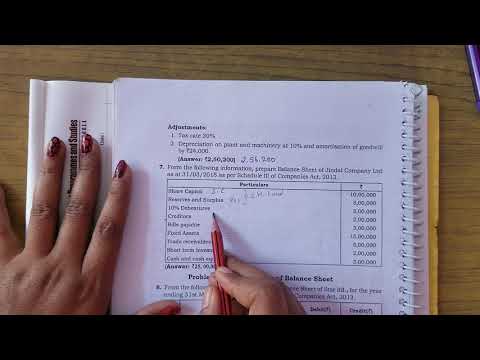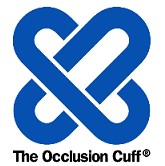Accounting Consultant Meaning, Role, Pros & Cons of Hiring

Senior cost accountants must also provide reports that specify and compare factors affecting prices and profitability of products or services to the management. Accounting consultants add value to an individual or organization by using accounting expertise to teach, guide, and advise clients toward better financial management or more beneficial tax strategies. Accounting consultants offer financial advice and services to businesses, including financial analysis, budgeting, and tax advice. Before an accounting consultant can provide effective advice or services, they must first understand the client’s business operations, financial needs, and long-term goals.
- It’s becoming increasing popular for many CPAs to offer their services in an accounting consultant capacity, which is a bridge to becoming the holistic trusted advisor consumers are looking for in today’s economic climate.
- An accountant consultant doesn’t just analyze numbers; they also guide businesses in financial planning, budgeting, and investments.
- Before launching your consulting career, determine what type of work you think you may want to do.
- Successful accountant consultants have strategies to navigate these hurdles despite the inherent challenges.
- The pros of being an accountant consultant include high demand in the market, the potential for a high income, and challenging and diverse work.
A copy of 11 Financial’s current written disclosure statement discussing 11 Financial’s business operations, services, and fees is available at the SEC’s investment adviser public information website – from 11 Financial upon written request. 11 Financial may only transact business in those states in which it is registered, or qualifies for an exemption or exclusion from registration requirements. 11 Financial’s website is limited to the dissemination of general information pertaining to its advisory services, together with access to additional investment-related information, publications, and links. Accounting consultants help businesses navigate these complex regulatory landscapes, advising on tax preparation, adherence net sales overview formula and components income statement to financial reporting standards, and understanding and complying with relevant business laws. This analysis helps the consultant identify areas of strength and weakness within the company’s finances, which can guide strategic planning and decision-making. Spanning across four strategic areas of transformation, our products tackle the very real challenges our clients face today, and unlock new opportunities for growth in the future.
How to Become an Accountant Consultant
This dynamic environment necessitates that accounting consultants possess the ability to adapt swiftly and provide services that meet their client’s evolving needs. One of the essential duties of an accounting consultant involves performing regular audits to ensure that the business meets financial regulations. An accounting consultant is a seasoned professional who offers expert advice to organizations regarding the management and organization of their financial systems. Starting your accounting consultancy career can be daunting—especially if you are branching out from a more traditional accounting role. However, understanding the career pathways available and skills required for this position will help you plan your journey to becoming an accounting consultant. You could also apply directly for an accounting consultant position with an accounting firm, where you would work with and learn from other accounting consultants and gain easy access to clients.

Ensuring an organization’s compliance with relevant laws and regulations helps avoid the risk of financial penalties or reputational damage. Our mission is to empower readers with the most factual and reliable financial information possible to help them make informed decisions for their individual needs. Finance Strategists has an advertising relationship with some of the companies included on this website. We may earn a commission when you click on a link or make a purchase through the links on our site.
How is technology impacting the future of accounting consultancy?
Essential skills for success include technical proficiency, business advisory experience, and hands-on accounting experience. Becoming an accountant consultant requires a combination of formal education, professional certifications, and practical experience. Practical experience advising businesses on financial decisions, operational efficiency, and strategic planning can significantly enhance an accountant’s consultancy potential. While formal education and certifications provide the theoretical foundation and professional legitimacy, practical skills, and experience make an accountant consultant genuinely effective. It involves a purposeful journey that combines rigorous academic studies, professional certifications, hands-on experience, and the development of a diverse skill set. how to calculate the employee retention credit Getting started can be as simple as merely getting your name out there to your existing clients and referral sources or as complicated as starting a business from the ground up.
Building Your Career as an Accountant Consultant
They often carry professional certifications such as Certified Public Accountant (CPA) or Certified Management Accountant (CMA), which are a testament to their competence in the field. This activity includes adherence to tax laws, financial reporting standards, and other relevant legislation. Their customized approach ensures that every aspect of the organization’s financial functions operates efficiently.
Someone on our team will connect you with a financial professional in our network holding the correct designation and expertise. Our writing and editorial staff are a team of experts holding advanced financial designations and have written for most major financial media publications. Our work has been directly cited what are noncash expenses meaning and types by organizations including Entrepreneur, Business Insider, Investopedia, Forbes, CNBC, and many others.
The pros of being an accountant consultant include high demand in the market, the potential for a high income, and challenging and diverse work. Joining professional associations can provide valuable opportunities for networking, mentoring, and ongoing professional development. Accountant consultants are exposed to various projects and clientele, which keeps their work exciting and diverse.
Each of these areas requires unique methodologies and tools, the adept handling of which is a testament to a consultant’s capabilities. The Zippia Research Team has spent countless hours reviewing resumes, job postings, and government data to determine what goes into getting a job in each phase of life. We calculated that 15% of Accounting Consultants are proficient in CPA, GAAP, and Reconciliations. They’re also known for soft skills such as Analytical skills, Communication skills, and Organizational skills.






